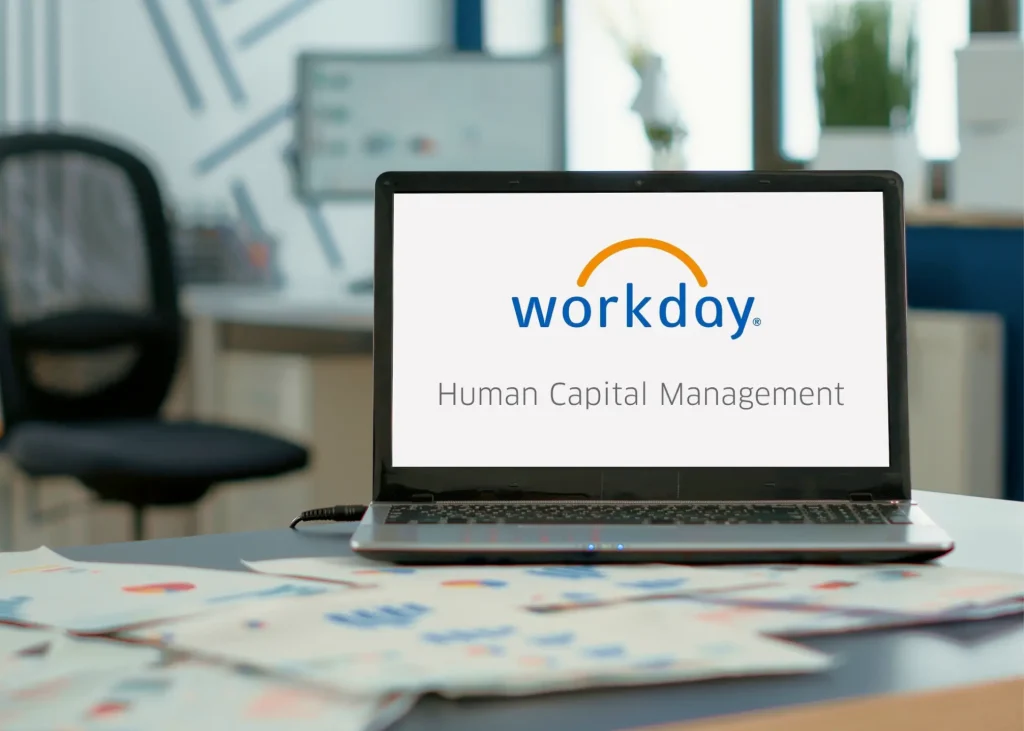In today’s fast-paced business world, managing human capital effectively is crucial for any organization. Workday HCM (Human Capital Management) is a cloud-based HR solution designed to streamline human resource processes, enhance employee experience, and optimize workforce management. But how well does it truly perform? Let’s dive into an in-depth review of Workday HCM, exploring its features, pros and cons, and whether it’s the right fit for your business.

A Company’s HR Transformation with Workday HCM
Imagine a mid-sized tech company struggling with outdated HR systems. Employees frequently faced payroll errors, managers lacked real-time insights into workforce analytics, and HR teams were drowning in manual processes. The company decided to implement Workday HCM, and within months, efficiency skyrocketed. Automated workflows replaced manual tasks, data-driven insights improved workforce planning, and employees finally had a seamless self-service portal. This transformation is not unique—many businesses have experienced similar success with Workday HCM.
Key Features of Workday HCM
Workday HCM comes with a robust set of features designed to cater to modern HR needs. Below are some of its most powerful capabilities:
1. Core HR and Employee Self-Service
- Centralized employee records
- Intuitive self-service portal
- Employee lifecycle management
2. Talent Management
- AI-driven talent acquisition
- Learning and development tools
- Performance and goal tracking
3. Workforce Planning and Analytics
- Real-time workforce insights
- AI-powered predictive analytics
- Scenario planning tools
4. Payroll and Benefits Administration
- Global payroll capabilities
- Benefits tracking and compliance
- Automated tax calculations
5. Time Tracking and Absence Management
- Seamless time tracking integrations
- PTO and leave management
- Compliance with labor regulations
Workday HCM Pricing
Workday does not publicly disclose its pricing, as costs vary based on business size, number of users, and required modules. However, estimates suggest that pricing typically starts at around $100-$200 per employee per year, with additional costs for add-ons and integrations.
Workday HCM Data Table
| Feature | Details |
|---|---|
| Deployment | Cloud-based SaaS |
| Best For | Enterprises, mid-sized businesses |
| Core HR | Yes, with self-service portal |
| Talent Management | AI-driven recruitment, learning & development |
| Workforce Analytics | Real-time dashboards, predictive insights |
| Payroll Management | Global payroll, automated tax compliance |
| Time & Attendance | Integrated time tracking, PTO management |
| Integrations | ERP, Payroll, Learning Management Systems (LMS) |
| Pricing | Custom, estimated $100-$200 per employee/year |
| Mobile Access | Yes, with iOS & Android apps |
Pros and Cons of Workday HCM
Pros:
✅ Cloud-based, ensuring real-time data access and security
✅ Intuitive UI and mobile-friendly design
✅ AI-powered analytics for smarter HR decisions
✅ Strong talent and performance management tools
✅ Scalable for growing businesses
Cons:
❌ High initial setup costs
❌ Learning curve for new users
❌ Limited customization compared to some competitors
❌ Pricing can be expensive for small businesses
Is Workday HCM Right for Your Business?
Workday HCM is a powerful solution for mid-to-large enterprises looking for an all-in-one HR platform. If your company needs robust analytics, AI-driven talent management, and seamless payroll processing, Workday HCM is an excellent investment. However, for small businesses with limited budgets, alternative HR solutions might be more cost-effective.
Conclusion
Workday HCM stands out as one of the top HR solutions, offering advanced features to enhance workforce management. While it may come at a higher cost, the benefits in automation, insights, and efficiency make it a worthwhile option for growing companies. If your business is ready to embrace a cloud-based HR transformation, Workday HCM is definitely worth considering. Visit official website to look offers.